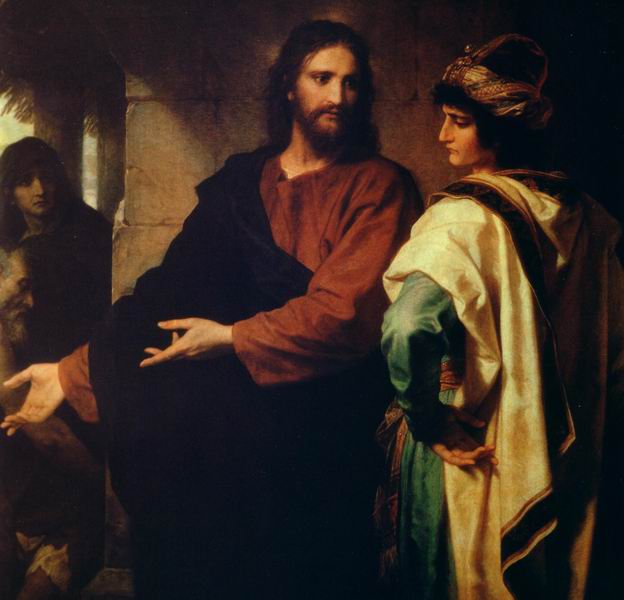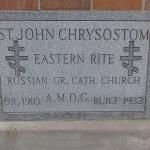
This is one of my many critiques of the book entitled, Roman but Not Catholic: What Remains at Stake 500 Years after the Reformation, by evangelical Protestant theologian Kenneth J. Collins and Anglican philosopher Jerry L. Walls (Grand Rapids, Michigan: Baker Academic, 2017).
*****
Kenneth Collins, in his chapter 3: “Scripture: No Greater Authority?” states:
Take the book of Tobit, for example. Its observation found in 12:9: “For almsgiving saves from death, and purges all sin,” is no doubt theologically confused, for it not only contradicts the clear teaching of the apostolic testimony of Paul found in Romans 4-5, for example, but also detracts from the unique and glorious atoning work of the Son of God incarnate, Jesus Christ.
The entire verse in RSV is: “For almsgiving delivers from death, and it will purge away every sin. Those who perform deeds of charity and of righteousness will have fulness of life;” This is not an unusual or heretical sentiment in Scripture (in its non-deuterocanonical portions). For example:
Proverbs 10:2 / 11:4 (RSV) . . . righteousness delivers from death.
“Self-cleansing” from sin is a scriptural teaching:
2 Corinthians 7:1 . . . let us cleanse ourselves from every defilement of body and spirit, and make holiness perfect in the fear of God.
James 4:8 Draw near to God and he will draw near to you. Cleanse your hands, you sinners, and purify your hearts, you men of double mind.
Sirach 38:10 Give up your faults and direct your hands aright, and cleanse your heart from all sin.
The New Bible Dictionary defines “alms” or “almsgiving” as “pity, prompting relief given in money or kind[ness?] to the poor.” Collins claims that alms or good works and service to the less fortunate leading to salvation or purging of all sin is an unbiblical and heretical notion. Yet our Lord Jesus teaches otherwise:
Matthew 25:31-40 (RSV) “When the Son of man comes in his glory, and all the angels with him, then he will sit on his glorious throne. [32] Before him will be gathered all the nations, and he will separate them one from another as a shepherd separates the sheep from the goats, [33] and he will place the sheep at his right hand, but the goats at the left. [34] Then the King will say to those at his right hand, `Come, O blessed of my Father, inherit the kingdom prepared for you from the foundation of the world; [cf. 25:46: “eternal life”] [35] for I was hungry and you gave me food, I was thirsty and you gave me drink, I was a stranger and you welcomed me, [36] I was naked and you clothed me, I was sick and you visited me, I was in prison and you came to me.’ [37] Then the righteous will answer him, `Lord, when did we see thee hungry and feed thee, or thirsty and give thee drink? [38] And when did we see thee a stranger and welcome thee, or naked and clothe thee? [39] And when did we see thee sick or in prison and visit thee?’ [40] And the King will answer them, `Truly, I say to you, as you did it to one of the least of these my brethren, you did it to me.’
Jesus expressly teaches here that the sheep were saved (at the very least, in large part) because they did good works (basically, almsgiving to the “least”); in other words, exactly what Tobit 12:9 teaches. If they are saved and going to heaven, they will have no more sin, and Jesus said it was because they did these good works. And He teaches the same in another famous passage: about the rich young ruler:
Matthew 19:16-24 And behold, one came up to him, saying, “Teacher, what good deed must I do, to have eternal life?” [17] And he said to him, “Why do you ask me about what is good? One there is who is good. If you would enter life, keep the commandments.” [18] He said to him, “Which?” And Jesus said, “You shall not kill, You shall not commit adultery, You shall not steal, You shall not bear false witness, [19] Honor your father and mother, and, You shall love your neighbor as yourself.” [20] The young man said to him, “All these I have observed; what do I still lack?” [21] Jesus said to him, “If you would be perfect, go, sell what you possess and give to the poor, and you will have treasure in heaven; and come, follow me.” [22] When the young man heard this he went away sorrowful; for he had great possessions. [23] And Jesus said to his disciples, “Truly, I say to you, it will be hard for a rich man to enter the kingdom of heaven. [24] Again I tell you, it is easier for a camel to go through the eye of a needle than for a rich man to enter the kingdom of God.” (cf. Mk 10:17, 19, 21; Lk 18:18, 20, 22)
Jesus doesn’t say a word about “faith alone” or faith in Him alone. It’s all about works, works, works. First Jesus says that “the commandments” will bring eternal life. Then he says that almsgiving will lead to entering the kingdom of heaven: precisely as Tobit 12:9 does. I wrote one article about the rich young ruler in this regard, and also have a dialogue about it posted.
Catholics aren’t Pelagians (not even semi-Pelagians). We don’t believe in salvation by works. Salvation is ultimately by God’s grace alone. Every good work we do is enabled by His grace and mercy; we could never do good on our own. Yet every time final judgment is discussed in Scripture, the subject matter is works, never ever faith alone (sola fide). I’ve documented this, with fifty passages about final judgment. Works do not save anyone. This is Catholic teaching. But works are neither separated from faith nor from salvation. Protestants want to separate works and sanctification from justification and salvation altogether. Jesus and St. Paul, on the other hand, do not do so. As St. James stated, “faith without works is dead.
I did finally find one passage that at least mentions faith in the context of judgment (but alas, not faith alone): Revelation 21:8 includes the “faithless” among those who will be damned for eternity. Even there it is surrounded by many bad works that characterize the reprobate person.
Collins wants to mention Romans 4-5 as a supposed refutation of Tobit 12:9 and Catholicism, yet he ignores the same glorious apostle Paul’s equally clear teaching in Romans 2:
Romans 2:6-8 For he will render to every man according to his works: [7] to those who by patience in well-doing seek for glory and honor and immortality, he will give eternal life; [8] but for those who are factious and do not obey the truth, but obey wickedness, there will be wrath and fury. [9] There will be tribulation and distress for every human being who does evil, the Jew first and also the Greek, [10] but glory and honor and peace for every one who does good, the Jew first and also the Greek. . . . [13] For it is not the hearers of the law who are righteous before God, but the doers of the law who will be justified.
1 Peter 1:17 states that God “judges each one impartially according to his deeds,” etc. St. Peter has a very explicit passage in which he teaches that works of various sorts can lead to a life without sin:
1 Peter 4:1-2, 7-9 Since therefore Christ suffered in the flesh, arm yourselves with the same thought, for whoever has suffered in the flesh has ceased from sin, [2] so as to live for the rest of the time in the flesh no longer by human passions but by the will of God. . . . [7] The end of all things is at hand; therefore keep sane and sober for your prayers. [8] Above all hold unfailing your love for one another, since love covers a multitude of sins. [9] Practice hospitality ungrudgingly to one another.
Therefore, based on the teachings of Solomon, Jesus, St. Paul, and St. Peter, Tobit 12:9 is perfectly orthodox and correct, and can’t be used as a rationale to exclude Tobit from canonical status.
***
Photo credit: Christ and the Rich Young Ruler (1889), by Heinrich Hofmann (1824-1911) [public domain / Wikimedia Commons]
***













